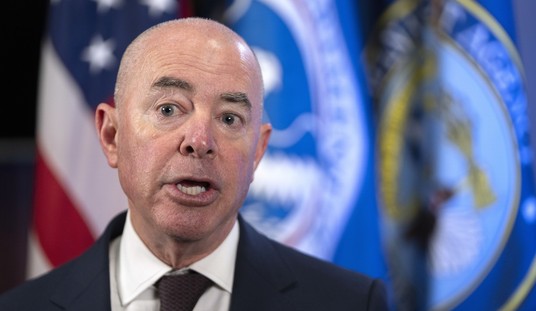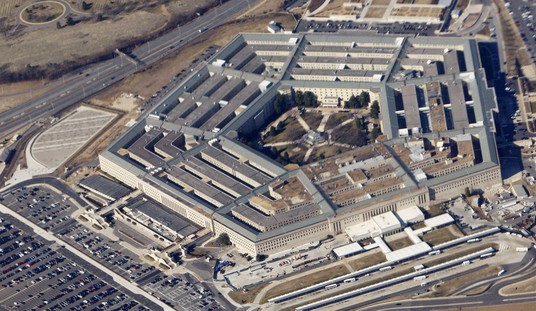
Little more than a week ago I posted on the effort by Tennessee Senator Bob Corker to troll Donald Trump by holding a hearing of the Senate Foreign Relations Committee on Trump’s authority to order a nuclear strike. Never mind that there is no nuclear war looming. Never mind that any changes to how US nuclear weapons are controlled would have to come from the Senate Armed Services Committee. Indeed, in anti-Trump circles it has become something of a sport to question Trump’s mental fitness and root for a military coup d’état that will take the republic out of the hand of its Constitutional leaders and put it in the hands of the military.
During that hearing, the subject naturally came up of how a commander would react to an order to use nuclear weapons that he regarded to be illegal:
Procedures are in place for ensuring U.S. nuclear weapons are ready for a presidential launch order in response to — or in anticipation of — a nuclear attack by North Korea or anyone else. There are backup procedures and backups for the backups.
And yet fundamental aspects of this nightmare sequence remain a mystery.
For example, what would happen if an American president ordered a nuclear strike, for whatever reason, and the four-star general at Strategic Command balked or refused, believing it to be illegal?
Robert Kehler, a retired general who once led that command, was asked this at a congressional hearing last week. His response: “You’d be in a very interesting constitutional situation.”
Yesterday, US Strategic Command (STRATCOM) commander Air Force General John Hyten was at something called the “Halifax International Security Forum.” As CBS reports the same question was posed to Hyten.
Hyten was responding to a question about testimony by former STRATCOM commander retired Gen. Robert Kehler before the Senate Foreign Relations Committee earlier this week. Kehler said that nuclear operators would refuse to implement an unlawful order. Hyten agreed, and argued that the process in place to launch a nuclear strike would prevent such a situation from arising in the first place. As head of STRATCOM, Hyten is responsible for overseeing the U.S. nuclear arsenal.
So the question has nothing to do with Trump–in fact Hyten doesn’t even mention Trump–and everything to do with the process for using nukes.
Hyten, who is responsible for overseeing the U.S. nuclear arsenal, explained the process that would follow such a command.
As head of STRATCOM “I provide advice to the president, he will tell me what to do,” he said in his remarks, retransmitted in a video posted on the forum’s Facebook page.
“And if it’s illegal, guess what’s going to happen? I‘m going to say, ‘Mr. President, that’s illegal.’ And guess what he’s going to do? He’s going to say, ‘What would be legal?’ And we’ll come up with options, of a mix of capabilities to respond to whatever the situation is, and that’s the way it works. It’s not that complicated.”
Hyten said running through scenarios of how to react in the event of an illegal order was standard practice, and added: “If you execute an unlawful order, you will go to jail. You could go to jail for the rest of your life.”
Hyten is correct. An unlawful order isn’t one that you don’t like, it is one that violates the principles of the Law of Armed Conflict. If you watch the video clip. Hyten does a great job of laying out those principles. (Ironically, the Trump administration took a lot of grief over a convoy of ISIS fighters being allowed to escape. The convoy was know to contain the families of the fighters and striking it would have been a classic violation of the law of land warfare, but that unlawful order was considered fine by a lot of the same people having multiple orgasms over Hyten’s answer.) The underlying premise is every order you receive is presumed to be legal. Your boss never has to prove to you the order is legal, you have to show why it is illegal. Not that the order is unwise or even stupid, you have to show that it violates US law or US treaty obligations. And you have to do this to your boss, his boss…and maybe to a court-martial panel.
If you receive what you think is an illegal order, first you ask for clarification to make sure you understand what you are being told to do. Maybe “take care of the prisoners” doesn’t mean to line them up and machinegun them. If the clarification doesn’t change your perception, then you kick it up to your boss’s boss. If you are still told to do it, you have two choices. You can entertain the possibility they might know what they are doing and you don’t and go ahead and carry out the order…or you can martyr yourself. As Hyten says, “it’s not that complicated.”
Let’s look at Hyten’s example
“And if it’s illegal, guess what’s going to happen? I‘m going to say, ‘Mr. President, that’s illegal.’ And guess what he’s going to do? He’s going to say, ‘What would be legal?’ And we’ll come up with options, of a mix of capabilities to respond to whatever the situation is, and that’s the way it works. It’s not that complicated.”
See the process? It doesn’t involve saying “no,” it is a process of carrying out the president’s intent within the context of law. In fact, beginning at 1:07, Hyten is given the opportunity to say that he’d say “no,” and he refuses to do so.
Hyten’s response was clearly intended to tell the media to chill out.
I’ve seen 4 different major press outfits instead frame it as Hyten boldly defying the President.
The age we live in.https://t.co/Ed37xqXBIc
— John Noonan (@noonanjo) November 19, 2017
Noonan, by the way, is a former staffer on the House Armed Services Committee. He now works for Tom Cotton, and he’s a former USAF Minuteman missile launch officer.
And, for the record, a nuclear strike against North Korea’s nuclear arsenal would be a clearly and unambiguously legal act if a very messy one. Even so, there is a bit of shorthand at work in Hyten’s example. An order to launch nukes, in other than a retaliatory strike after we’d been hit by a nuclear weapon, would come via the Chairman of the Joint Chiefs of Staff. That order would be issued in response to orders received from the Secretary of Defense.
In Hyten’s scenario, if the president disagrees, Hyten’s objection may or may not be meaningful. Let’s go back to Corker’s hearing:
Brian McKeon, a senior policy adviser in the Pentagon during the Obama administration, said a president’s first recourse would be to tell the defense secretary to order the reluctant commander to execute the launch order.
“And then, if the commander still resisted,” McKeon said as rubbed his chin, “you either get a new secretary of defense or get a new commander.” The implication is that one way or another, the commander in chief would not be thwarted.
Bingo. Because the president is the commander in chief, he gets the last vote.
Take this discussion from some arms control guys:
https://twitter.com/pstanpolitics/status/932012760917008385
https://twitter.com/NarangVipin/status/932013768413974528
Nor I. As Hyten admits, he could quickly offer Trump a “legal” version of anything he might wish to do, no matter how heinous.
— Jeffrey Lewis (@ArmsControlWonk) November 18, 2017
The only headline here was that Hyten said that he’d follow established procedure. Sad that that rated a headline.














Join the conversation as a VIP Member